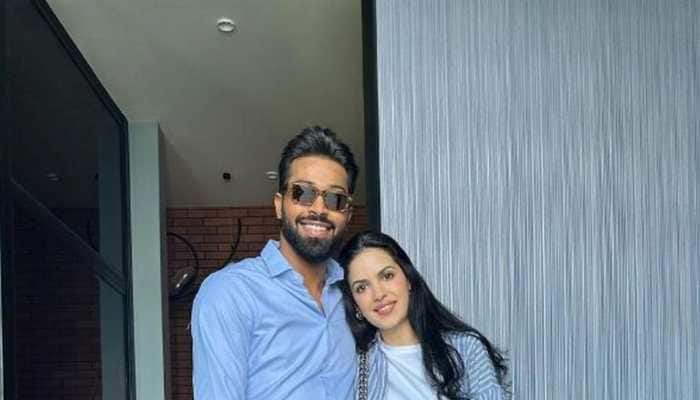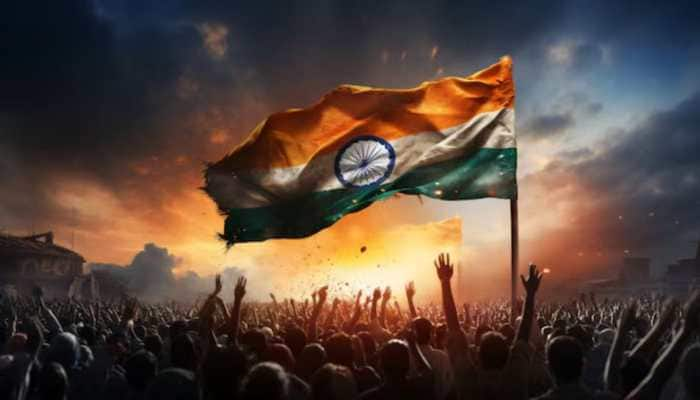When General Pervez Musharraf Visited India for Historic Agra Summit with AB Vajpayee
India-Pakistan Agra Summit: After the devastating Gujarat earthquake, General Musharraff called on then PM AB Vajpayee and expressed his condolences over the loss of lives and also despatched relief material, including medicines to India. In his memoir, Gen Musharaff later said, "That broke the ice and led to an invitation for meeting to visit India for Agra Summit."
Trending Photos
)
NEW DELHI: Former Pakistan military chief and President General Pervez Musharraf, who is also viewed by many as the main architect of the Kargil conflict in 1999 that almost brought India and Pakistan closer to full-scale war, had visited Agra in July 2001 for the historic summit with the then-former prime minister Atal Bihari Vajpayee with an aim to turn a ''new leaf in bilateral relations'' between the two nuclear-powered nations.
The Agra Summit was extremely significant as it was the first meeting between the leaders of the two countries after Vajpayee’s historic bus trip to Lahore which was followed by the infiltrations in Kargil several months later. It may be recalled that on February 19, 1999, Vajpayee boarded the inaugural bus to Lahore at Amritsar and reached the India-Pakistan border at Attari-Wagah.
On 20-21 February 1999, Vajpayee and his Pakistani counterpart, Nawaz Sharif, made a brilliant effort to rewrite the history of South Asia. During his Pakistan tour, which later came to be known as Lahore Diplomacy, Vajpayee also later visited the Minar-e-Pakistan and Maharaja Ranjit Singh’s Samadhi - which commemorates the foundation of the Islamic Republic, thereby changing the narrative created by the Jana Sangh that India would never recognise the existence of Pakistan.
The two countries later signed the ‘Lahore Declaration’ and to mark the historic occasion, Vajpayee said that it was time for the two countries to end five decades of hostility and move towards peace and stability in the Indian subcontinent. However, just days after Vajpayee’s Lahore trip, Pakistani troops disguised as irregular fighters secretly infiltrated the Line of Control (LoC) in the Kargil sector, triggering a fierce border conflict that ended disastrously for the Pakistani side.
In addition to humiliation at the hands of the Indian Army and Air Force, Pakistan was forced to withdraw its troops after then US president Bill Clinton also threw his weight on the Indian side instead of brokering a peace deal as sought by Nawaz Sharif.
Musharraf, who was believed to have designed the Kargil conflict, wrote in his memoir later that he saw a golden opportunity to “break the ice” in Pakistan’s relationship with India in the aftermath of the devastating earthquake in Gujarat in early 2001. As a goodwill gesture, General Musharraf, called on Vajpayee and expressed his condolences over the loss of lives and also despatched relief material, including medicines to India. In his memoir, Gen Musharraf later said, "That broke the ice and led to an invitation for meeting to visit India."
After his arrival in India, amid unprecedented security, Vajpayee hosted a lunch in his honour, which was followed by a meeting with President Narayanan, then Congress president Sonia Gandhi and other top political leaders. Later in the day, he visited Rajghat, the memorial to Mahatma Gandhi, to lay a wreath followed by a High Tea reception by the Pakistani High Commissioner, and an evening banquet hosted by President Narayanan.
Ahead of the Agra Summit, the two leaders said they would approach the meeting with an open mind and expressed their desire to repair the broken bilateral ties. But shortly before that, the two sides hardened their positions on the highly vexed issue of Kashmir, with Vajpayee saying that "Kashmir would always remain an integral part of India" of nationhood and rejected any suggestion of third-party mediation.
Despite high expectations from the meeting, the Agra Summit collapsed - one of the reason being Musharraf’s grandstanding at a breakfast meeting with Indian journalists. Despite hectic meetings, the two sides failed to sign a joint agreement, which angered Gen Musharraf and he left Agra for Pakistan. However, in between his meetings with the Indian leaders, Musharraf also took his wife on a tour of the iconic Taj Mahal.
Several reasons were attributed to the failure of the Agra Summit, particularly, Musharraf's off-the-record interaction with Indian journalists, the videos of which were later broadcast by news channels. Years later, Musharraf met Vajpayee again at a regional summit in Nepal when he approached him and offered his hand to Vajpayee. The Indian Prime Minister also later reciprocated this gesture of ''handshake'' by visiting Pakistan for a summit meeting in January 2004. The two countries expressed their sincere desire to take the peace process forward but a few months later Vajpayee's NDA alliance lost the elections and the Congress-led UPA government came to power in India.
In his book ‘Neither a Hawk nor a Dove,’ former Pakistan Foreign Minister Khurshid Mahmud Kasuri wrote that the “solution to Kashmir was in the grasp of both governments,” but a great opportunity was missed.
Former Pakistan President and Army Chief Pervez Musharraf died after a prolonged illness at the American Hospital in UAE's Dubai after spending several years in self-imposed exile. He was 79. He had survived numerous assassination bids and found himself on the front line of the struggle between militant Islamists and the West.
Stay informed on all the latest news, real-time breaking news updates, and follow all the important headlines in india news and world News on Zee News.
Live Tv







)
)
)
)
)
)
)
)
)
)
